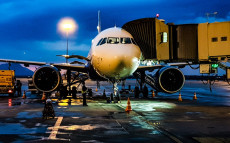- pathfindersAI
- Job Profile
Transportation Security Screeners
Summary
Transportation Security Screeners: Guardians of the Skies
What They Do
Transportation Security Screeners play a critical role in maintaining the safety and security of national transportation systems, particularly at airports. These professionals are the frontline defense against various security threats, ensuring that passengers and cargo can travel safely and efficiently. Their primary duty is to screen passengers, baggage, and cargo for prohibited items and potential threats. They operate specialized equipment such as X-ray machines, metal detectors, and explosive detection systems to identify and mitigate risks. With an unwavering commitment to public safety, Transportation Security Screeners uphold the integrity of crucial transportation infrastructure.
Job Responsibilities
Transportation Security Screeners have a wide array of responsibilities that require meticulous attention to detail and rigorous adherence to established procedures. Their main tasks include:
- Conducting Screening Procedures: Utilizing advanced scanning and detection equipment to screen passengers and their belongings.
- Operating Surveillance Systems: Monitoring video surveillance feeds to ensure no unauthorized access occurs and swiftly responding to suspicious activity.
- Interacting with Passengers: Providing clear instructions and responding to inquiries while maintaining a professional demeanor.
- Incident Response: Acting quickly and efficiently in the event of security breaches or emergencies.
- Documentation and Reporting: Keeping accurate records of incidents and ensuring that all documentation meets regulatory standards.
- Collaboration: Working closely with other security personnel, law enforcement agencies, and airport staff to maintain a secure environment.
Essential Skills
A career as a Transportation Security Screener requires a unique blend of technical proficiency, interpersonal skills, and personal attributes. Essential skills include:
- Attention to Detail: The ability to notice small details that could indicate potential threats.
- Technical Aptitude: Proficiency with screening equipment and staying up-to-date with technological advancements.
- Communication: Effective verbal and written communication skills to interact with passengers and team members.
- Critical Thinking: The capacity to analyze situations quickly and make decisions under pressure.
- Physical Stamina: The physical capability to stand for extended periods and perform manual inspections.
- Empathy and Patience: Handling stressful situations calmly and helping passengers navigate through security procedures.
Educational Pathways
While a high school diploma or GED is typically the minimum educational requirement for a Transportation Security Screener, additional training and certifications can enhance job prospects and performance. Prospective screeners must complete the Transportation Security Administration's (TSA) intensive training program, which includes classroom instruction, on-the-job training, and certification exams. Training covers topics such as security regulations, threat detection, and proper use of screening equipment. Additional certifications in security and law enforcement can further bolster a candidate’s qualifications. Community colleges and vocational schools often offer courses and associate degrees in fields like criminal justice or homeland security, which provide valuable knowledge applicable to this career.
Career Prospects
The role of a Transportation Security Screener offers numerous opportunities for growth and advancement. Entry-level positions provide a strong foundation, and with experience, individuals can move into supervisory or managerial roles within the TSA or other security agencies. There is also potential for specialization in areas such as cargo screening, behavioral detection, and explosive detection. The growing emphasis on national security and the expansion of air travel create sustained demand for skilled professionals in this field, ensuring a relatively stable job market. Moreover, the skills and knowledge gained in this role can be transferable to other security-related positions across various industries.
Conclusion
Transportation Security Screeners are indispensable to the safety and efficiency of our transportation systems. Their dedication and vigilance safeguard countless lives and maintain public confidence in air travel. This career demands a unique combination of technical skill, keen observation, and interpersonal expertise. While the educational requirements are straightforward, ongoing training and development are integral to success. The role offers a pathway to impactful and rewarding work, with opportunities for advancement and specialization. As the guardians of our skies, Transportation Security Screeners play a pivotal role in upholding national security and ensuring the seamless movement of people and goods.
Video
Compensation
| State | Median Salary | Median Hourly | Positions |
|---|---|---|---|
| AL | 48,760 | 23.44 | 270 |
| AK | 62,460 | 30.03 | 490 |
| AZ | 52,870 | 25.42 | 1,190 |
| AR | 46,510 | 22.36 | 180 |
| CA | * | * | 6,340 |
| CO | 55,660 | 26.76 | 1,190 |
| CT | 54,000 | 25.96 | 230 |
| FL | 45,530 | 21.89 | 6,180 |
| GA | 47,070 | 22.63 | 1,730 |
| HI | 51,540 | 24.78 | 1,050 |
| ID | 47,420 | 22.80 | 210 |
| IL | 50,480 | 24.27 | 1,800 |
| IN | 50,340 | 24.20 | 410 |
| IA | 47,570 | 22.87 | 170 |
| KS | 45,760 | 22.00 | 130 |
| KY | 49,840 | 23.96 | 420 |
| ME | 52,100 | 25.05 | 140 |
| MD | 48,070 | 23.11 | 800 |
| MA | 65,980 | 31.72 | 1,010 |
| MI | 49,920 | 24.00 | 1,000 |
| MN | 58,410 | 28.08 | 620 |
| MS | 45,300 | 21.78 | 180 |
| MO | 48,130 | 23.14 | 510 |
| MT | 47,160 | 22.67 | 320 |
| NE | 50,020 | 24.05 | 220 |
| NV | 46,180 | 22.20 | 1,340 |
| NH | 53,500 | 25.72 | 100 |
| NJ | 49,400 | 23.75 | 1,760 |
| NM | 47,570 | 22.87 | 170 |
| NY | 51,400 | 24.71 | 3,240 |
| ND | 55,450 | 26.66 | 130 |
| OK | 45,760 | 22.00 | 250 |
| PA | 52,040 | 25.02 | 1,280 |
| RI | 51,230 | 24.63 | 140 |
| SC | 45,300 | 21.78 | 460 |
| SD | 46,510 | 22.36 | 70 |
| TN | 49,960 | 24.02 | 730 |
| TX | 49,520 | 23.81 | 4,460 |
| VT | 55,100 | 26.49 | 60 |
| VA | 48,070 | 23.11 | 1,720 |
| WV | 45,300 | 21.78 | 110 |
| WI | 49,590 | 23.84 | 460 |
| WY | 52,000 | 25.00 | 100 |
Similar Occupations
In this area you will find other occupations that are close to the one you were viewing in tasks, knowledge and work environment. If the primary job profile you are viewing isn't quite to your liking, take a look around and see what else is available.
Basic and Premium Accounts have more alternative occupations available than the Free account.

Aircraft Cargo Handling Supervisors - 53-1041.00
Aircraft Cargo Handling Supervisors oversee the loading, unloading, and securement of cargo on aircraft, ensuring adherence to weight and balance specifications and safety protocols. They coordinate with ground crew and logistics personnel to optimize efficiency and compliance with aviation regulations.
-
$58,920/yr
Median Pay -
9,020
Number of Jobs

Airfield Operations Specialists - 53-2022.00
An Airfield Operations Specialist oversees the safe and efficient movement of aircraft within the airfield, coordinating ground support activities and ensuring compliance with aviation regulations. They manage runway and taxiway conditions, communicate with pilots, and handle emergencies to maintain optimal airport operations.
-
$51,140/yr
Median Pay -
18,320
Number of Jobs